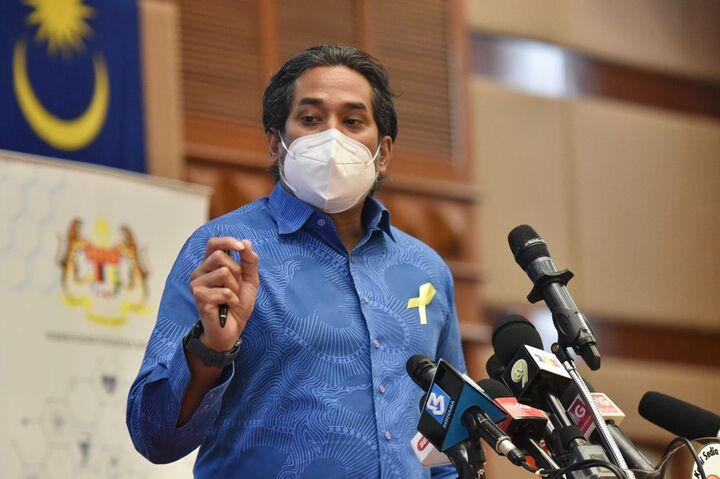KUALA LUMPUR, Feb 4 – Health Minister Khairy Jamaluddin today proposed banning smoking for the next generation and health care financing reforms to reduce cancer and improve cancer treatment access.
On World Cancer Day, Khairy pointed out that tobacco caused 22 per cent of deaths from cancer, while the annual cost of treating lung cancer from smoking is estimated at RM132.7 million.
“Realising this, MOH (Ministry of Health) is currently studying the implementation of a ban on smoking and possession of any smoking products for future generations through provisions related to the generational endgame in a new Act, the Tobacco and Smoking Control Act, that will be tabled soon,” Khairy said in a statement.
“This implementation is hoped to reduce the number of new smokers and with that, MOH can focus on the cost of the current disease burden.”
About one in five adults aged 15 years and older in Malaysia smoke, with an estimated 4.9 million current smokers.
At a press conference yesterday, Khairy acknowledged the high prevalence of illicit cigarettes in Malaysia, but said this should not prevent the government from seeking to ban the sale of tobacco, as well as e-cigarettes or vape, to anyone born after 2005.
The New Straits Times reported last October that illicit cigarettes comprised 57.9 per cent of the local cigarette market in May 2021, down from 64.1 per cent in December 2020, according to a study by the Confederation of Malaysian Tobacco Manufacturers.
Malaysia reported an 11 per cent increase in cancer cases for the 2012-2016 period that saw 115,238 cases, compared to the 2007-2011 period with 103,507 cases.
Cancer survival is very poor in Malaysia. Five-year relative survival rates here, or the percentage of patients who survive beyond five years of diagnosis, are 11 per cent for lung cancer, 51.1 per cent for colorectal cancer, 51.6 per cent for cervical cancer, 66.8 per cent for breast cancer, and 73 per cent for prostate cancer.
About 63.7 per cent of all cancer cases in Malaysia were detected in the late stages of three and four, leading to poor prognosis.
The most common cancers in women in Malaysia are breast (33.9 per cent), colorectal (10.7 per cent), and cervical cancer (6.2 per cent). The most common cancers faced by men in Malaysia are colorectal (16.9 per cent), lung (14.8 per cent), and prostate (8.1 per cent).
Smoking is predominantly a male problem in Malaysia, as about two in five men smoke. Nearly half the male population in every age group light up, except male teens aged 15 to 19 with 24 per cent smoking prevalence.
Khairy acknowledged the disparity in access to cancer treatment, as most cancer treatment centres are located in urban areas.
He noted that MOH has introduced the Peka B40 scheme that provides clinical breast exams for female recipients and clinical prostate exams for male recipients, besides health aid, incentives for completing cancer treatment, and transport incentives for travel to MOH hospitals.
“However, with the rising burden of NCDs (non-communicable diseases), including cancer, we need future-proof health care system reforms. This includes reforming health care financing,” Khairy said.
“In line with that, a Ministry of Health White Paper will be prepared for tabling in Parliament to obtain support from both government and Opposition MPs.”
Health care analyst Chua Hong Teck previously noted that more than 18 studies and papers on health care system and health care financing reform have been carried out since 1985, including the most recent major study in 2018 by Harvard University.
The previous Barisan Nasional government under Prime Minister Najib Razak tried unsuccessfully in 2011 to move Malaysia towards a social health insurance system called 1Care that was modelled after the United Kingdom’s National Health Service (NHS).








